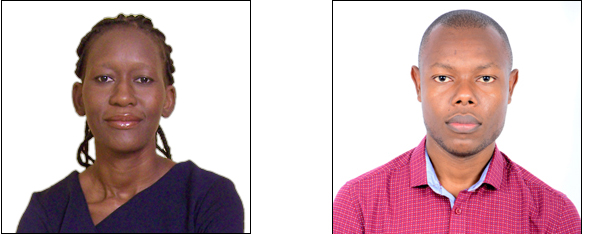
Burnt-out and bearing the brunt in Africa
A new systematic review examines rates of burnout among nurses in sub-Saharan Africa
The review’s publication in JBI Evidence Synthesis is timely. While initial fears that COVID-19 would ravage the continent and exact a huge death toll have not been realised, the potential for disaster in Africa remains, especially with the easing of lockdowns.
If containment fails and the healthcare system buckles, it is those on the ‘front line’ – the healthcare professionals – who will be overwhelmed and bear the brunt of a broken system. Nurses in sub-Saharan Africa already experience high levels of burnout as a response to chronic work-related stress.
The authors of the systematic review found that a significant proportion (more than 60%) of nursing staff in sub-Saharan Africa is affected by work-related stress. Lead author Rosebenter Owuor says:
“The nurses’ work environment in sub-Saharan Africa is characterised by many challenges including high patient-to-nurse ratio, nursing shortage, erratic supplies, inadequate equipment, and infrastructure. It’s not surprising that the prevalence of burnout is high across all its dimensions.”

The dimensions of burnout assessed included emotional exhaustion, depersonalisation, and low personal accomplishment. Burnout is an indicator of an overwhelmed and demotivated workforce, leading to absenteeism, medical errors, and decreased patient safety. Ms. Owuor explains: "Nurses are at the center of patient care; therefore, anything affecting them negatively in their work environment or as individuals impacts greatly on the quality of care”.
The authors report that this systematic review is the first attempt at assessing the burden of burnout among nurses in sub-Saharan Africa, and indeed the majority of studies identified during the search and screening processes of the review focused on the prevalence and risk factors for burnout in well-resourced settings in high-income countries.
The authors ultimately included 12 studies in their systematic review, encompassing a total of 2,543 nurse participants in studies from South Africa, Nigeria, Ethiopia, Senegal, and Uganda. One study focused on enrolled nurses from Kenya, Uganda, and Tanzania.
One of the co-authors of the systematic review, Dr. Clifford Mwita, explains that by investigating and reporting the plight of the healthcare workers in Africa, the review highlights one of the key barriers to achieving better health outcomes on the continent:
“It is increasingly apparent that sub-Saharan Africa bears the largest proportion of the global burden of disease while at the same time having the smallest number of healthcare providers to tackle this huge burden … The concern here is that because this small and overworked workforce has to fight the largest proportion of the global burden of disease, there is likely to be little impact on health outcomes without intervention.”
The authors hope that the insight the systematic review provides will assist in the development of measures and policies to prevent nurses’ burnout in sub-Saharan Africa:
“The findings of this review should prompt healthcare managers, governments, and policy makers to develop appropriate measures to stem burnout among healthcare workers. These measures should target both the individual worker and the environment in which they work”, says Dr. Mwita. “The review provides healthcare managers, governments, and other policy makers with the evidence needed to devise strategies that help curb burnout and improve the mental health of affected healthcare workers with the ultimate aim of improving healthcare outcomes”, he adds.
“It is time the nurse administrators, policy makers, and stakeholders developed interventions either work-related or individual-based that can contribute towards prevention and/or management of burnout in sub-Saharan Africa. Good strategies geared towards effective human resource management in the light of resource limitations would go a long way”, says Ms. Owuor.
'Prevalence of burnout among nurses in sub-Saharan Africa: a systematic review'
Owuor, Rosebenter Awuor; Mutungi, Koki; Anyango, Ruth; Mwita, Clifford C.
JBI Evidence Synthesis: June 2020 - Volume 18 - Issue 6 - p 1189-1207
doi: 10.11124/JBISRIR-D-19-00170